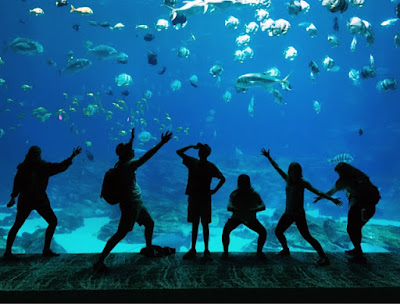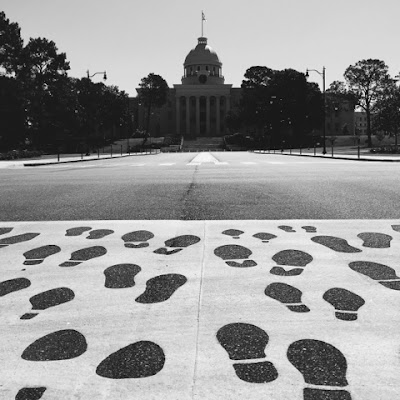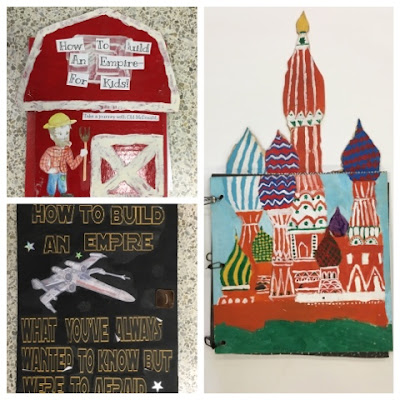
Relational teaching is more important than programming.
Recently the state of public education is getting more attention. There is a growing chorus in the media, and in government, that our public school system is in immediate need of change and reform. In many instances, I agree wholeheartedly that our schools need change. From scheduling, to teacher training, to innovative methods of pedagogy - we need reform.
But what is the trick to bring about meaningful change to our schools? How do we make meaningful changes to grow student learning at the classroom level?
In my experience that question has been answered with the introduction of new programs. It is an annual rite that each public school teacher will sit through a new programming proposal each year that promises to make each of us a "better teacher," and/or "improve student learning." In the past several years, my school system alone has introduced: PLCs, Balanced Literacy programs, PBIS, a statewide Formative Assessment program, Learning Targets, The Big Six, etc.
Each of us is expected to learn these strategies, and incorporate each of them into our classroom instruction. And many of these programs are effective, and include quality methods for teaching. I can honestly say that I currently utilize individual elements of all of the above strategies
in some way in my classroom.
But so do most other teachers in my system....and we are not all equal teachers.
Because great teaching is not taught by a program. Great teaching is a byproduct of great relationships.
In order for our students to truly learn anything from us, they must believe in us. The fact that state government hired us, or that we have the word "teacher" beside our name, is not enough to impress a teenager. (if anything, it has the opposite effect). Our first step as a teacher must be that we seek to understand our students. This is the necessary first step in teaching and learning, is to show an interest in the student.
 |
| Let's not take ourselves too seriously.... |
I stole a great idea from my teacher friend Lizzie, who requires each student to write her a letter on the first day of school - telling her everything about themselves that (s)he most wants his/her teacher to know. Since implementing this letter into my classes, I am most amazed by what students choose to tell me about, as well as what they omit. Basic biographical information often gives way to deeply held passions, and family dynamics. I have learned to keep these letters, and re-read them when I need a refresher on what makes certain students tick.
It was through this method that I was able to connect with one of my most amazing students, who until that time was mostly disengaged with school. Through her letter, and conversations, we bonded immediately over our shared love of punk rock music - namely Minor Threat. From there, she became the most engaged, helpful, and inquisitive student in my class that year.
From there, we have to provide opportunities for each student to express himself throughout our time together. My ninth grade civics teacher, Mr. Thompson was a master at this - allowing us to enjoy his class by playing team games that allowed us students to gain points for our team by demonstrating a non-academic skill. I was a less than enthusiastic student of civics, but I became a commodity on any team for my knowledge of popular music - which was one aspect of his game. I try to emulate this in most of my classes: playing Name That Tune, having Three-legged races, and asking sports questions.
And for the student to get to know
us, we must be more relational, mostly by humbling ourselves...often - and by not taking ourselves too seriously. We must make mistakes, admit these mistakes, laugh at ourselves, and allow for silliness.
In our AP World and Government classes, we take an annual road trip to a major city in the US. (I have written about these trips and their importance on this blog before). As a high school student I traveled to Western Europe with students and teachers, and it had an incredibly positive impact on me. Not only did that trip open my eyes to the awesomeness of the world abroad, but I continue to have a kinship with many of the fellow students and teachers who were on the trip.
So, now we (fellow teachers and myself) orchestrate similar trips, in the hopes that it will have a similar impact on the kids. And these trips have proven to be a fantastic way for us to develop relationships with our students and their families - as travelling together is one of the best ways to create lasting memories.
And though our students learn more as a direct result of improved and meaningful relationships - it is not a panacea. Like any healthy relationship, boundaries are crucial - and trust is everything. As teachers, we must constantly be vigilant that we model these healthy relationships - while engaging our students and their families with meaningful, authentic teaching.
 As I have written many times before, traveling is undefeated. Removing ourselves from our comfortable surroundings, and familiar haunts can immediately open our eyes to new perspectives in a wider world.
As I have written many times before, traveling is undefeated. Removing ourselves from our comfortable surroundings, and familiar haunts can immediately open our eyes to new perspectives in a wider world. 











.JPG)
.JPG)

.JPG)